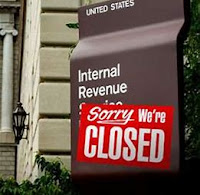 On January 7, 2019 we posted 1st Taxpayer Victory in a "Willful" FBAR Penalty Case Overturned at Appeals where we discussed that on May 1, 2018 we posted 1st Taxpayer Victory in a "Willful" FBAR Penalty Case Appealed! and now a recent 2nd Circuit Court of Appeals opinion weighed in on two uncertainties regarding willfulness in context of FBAR violations. First, the Court held that the definition of willfulness is not particular to FBAR violations but should involve the definition applied in other civil contexts. Particularly, the Court said:
On January 7, 2019 we posted 1st Taxpayer Victory in a "Willful" FBAR Penalty Case Overturned at Appeals where we discussed that on May 1, 2018 we posted 1st Taxpayer Victory in a "Willful" FBAR Penalty Case Appealed! and now a recent 2nd Circuit Court of Appeals opinion weighed in on two uncertainties regarding willfulness in context of FBAR violations. First, the Court held that the definition of willfulness is not particular to FBAR violations but should involve the definition applied in other civil contexts. Particularly, the Court said:
In assessing the inquiry performed by the District Court, we first consider its holding that the proper standard for willfulness is “the one used in other civil contexts, that is, a defendant has willfully violated [31 U.S.C. §5314] when he either knowingly or recklessly fails to file [a]FBAR.” (Op. at 7.)
We agree. Though “willfulness” may have many meanings, general consensus among courts is that, in the civil context, the term “often denotes that which is intentional, or knowing, or voluntary, as distinguished from accidental, and that it is employed to characterize conduct marked by careless disregard whether or not one has the right so to act.” Wehr v. Burroughs Corp., 619 F.2d 276, 281 (3d Cir. 1980) (quoting United States v. Illinois Central R.R., 303 U.S. 239, 242–43 (1938)) (internal quotation marksomitted).
In particular, where “willfulness” is an element of civil liability, “we have generally taken it to cover not only knowing violations of a standard, but reckless ones as well.” Fuges v. Sw. Fin. Servs., Ltd., 707 F.3d 241, 248 (3d Cir. 2012) (quoting Safeco Ins. Co. of Am. v. Burr, 551 U.S. 47, 57 (2007)). We thus join our District Court colleague in holding that the usual civil standard of willfulness applies for civil penalties under the FBAR statute.
Second, the Court held that knowledge of the filing requirement is not a necessary element - recklessness (i.e., reckless disregard) is enough. Here, the Court said:
This holds true as well for recklessness in the context of a civil FBAR penalty. That is, a person commits a reckless violation of the FBAR statute by engaging in conduct that violates “an objective standard: action entailing ‘an unjustifiably high risk of harm that is either known or so obvious that it should be known.’” Safeco, 551 U.S. at 68 (quoting Farmer v. Brennan, 511 U.S. 825, 836 (1994)). This holding is in line with other courts that have addressed civil FBAR penalties, see, e.g., United States v. Williams, 489 F.App’x 655, 658 (4th Cir. 2012), as well as our prior cases addressing civil penalties assessed by the IRS under the tax laws, see, e.g., United States v. Carrigan, 31 F.3d 130, 134 (3d Cir. 1994).
The Court then gave a definition for recklessness with respect to IRS filings, providing that:
[A] person “recklessly” fails to comply with an IRS filing requirement when he or she
“(1) clearly ought to have known that
(2)there was a grave risk that [the filing requirement was not being met] and if
(3) he [or she] was in a position to find out for certain very easily.”
Id. (quoting United States v. Vespe, 868 F.2d 1328, 1335 (3d Cir. 1989) (internal quotation omitted)).”
Bedrosian v. U.S., 3rd Cir., Case No. 17-3525, December 21, 2018
"The [district] court thus leaves the impression it did not consider whether Bedrosian's conduct satisfies the objective recklessness standard articulated
in similar contexts."
Noting that it could not "defer to a determination we are not sure the district court made based on our view of the correct legal standard," it thus remanded to the district court to render a new judgment on the issue of willfulness.
Have Undeclared Income from an Offshore Bank Account?
Been Assessed a 50% Willful FBAR Penalty?
Contact the Tax Lawyers at
Marini& Associates, P.A.
for a FREE Tax Consultation
Toll Free at 888-8TaxAid (888) 882-9243
Sources
 On January 7, 2019 we posted 1st Taxpayer Victory in a "Willful" FBAR Penalty Case Overturned at Appeals where we discussed that on May 1, 2018 we posted 1st Taxpayer Victory in a "Willful" FBAR Penalty Case Appealed! and now a recent
On January 7, 2019 we posted 1st Taxpayer Victory in a "Willful" FBAR Penalty Case Overturned at Appeals where we discussed that on May 1, 2018 we posted 1st Taxpayer Victory in a "Willful" FBAR Penalty Case Appealed! and now a recent 












